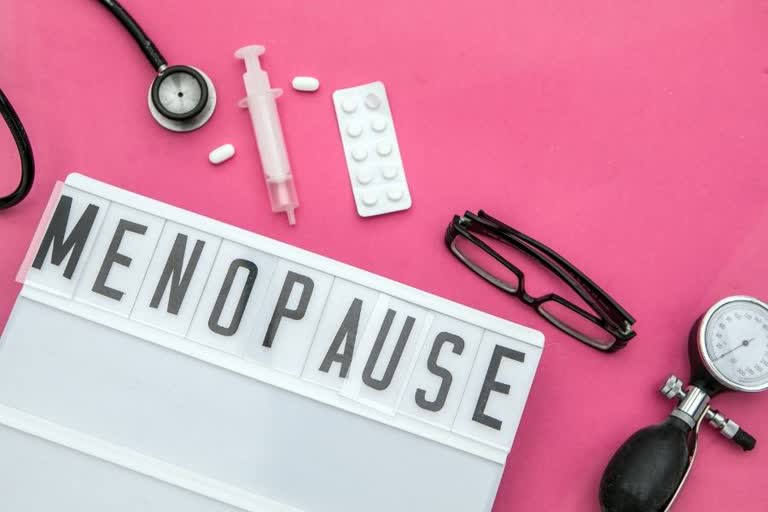Women go through a lot of changes in their bodies throughout their lifetime and menopause is one such phase, when a lot of changes, both physical and mental, are experienced. Menopause is an important phase for women in their mid-40s and 50s, after which they do not menstruate and cannot bear a child.
During this time, women's bodies also become more sensitive to various types of physical problems and they are at a high risk of other physical problems including diabetes, high blood pressure, heart disease and digestive problems.
To spread more awareness about the same and to urge women to focus on their physical and mental wellbeing during menopause, every year on 18th October, World Menopause Day is observed. This year, the theme of the day is “Bone Health”.
What Is Menopause?
If a woman does not menstruate for a whole year since her last period, sometime around the age of 45-55 years, it is called menopause. During this time, there is a change in the hormones in the woman's body and she stops ovulating. The process of menopause begins when the amount of follicles that develop in the body starts decreasing every month. Actually, it is the follicles because of which the ovaries release eggs in the female body. Along with this, the levels of the reproductive hormone estrogen and their production starts to decline. Therefore, when the production of follicles and estrogen and progesterone comes to an end, the menstrual cycles stop as well and this stage is called menopause.
Sometimes in women, menopausal symptoms may begin to appear between the age of 29-34 years, due to certain physical conditions or some other reasons. Certain autoimmune diseases such as thyroid, diabetes, celiac disease and rheumatic arthritis, etc., genetic causes, radiation or chemotherapy due to cancer treatment, damage to the ovaries due to infection like malaria or HIV, smoking, removal of ovaries after hysterectomy operation and premature ovarian failure, etc. a woman may face premature menopause. In such a condition, it is extremely important to seek medical help.
Symptoms Of Menopause
The main symptoms of menopause are irregular menstruation or no menstruation at all. Apart from this, problems related to digestion, sleep, metabolism, weight, mood swings such as anger, irritability, nervousness or anxiety may be experienced. Sometimes, women also face depression. Other physical symptoms may include joint pain, vaginal dryness, hot flashes, night sweats, etc.
Women lose their ability to conceive after menopause. As a result of changes in the levels of hormones in the body, a woman can also face stress, anxiety, lack of confidence, forgetfulness, as well as headache, joint pain, back pain and even osteoporosis. She may also be reluctant to form a sexual relationship with her partner, have excessive weakness, fatigue, diabetes, heart issues, etc.
Ayurveda’s Take On Menopause
Our expert Dr. P V Ranganayakulu, Ph.D. History of Ayurveda, informs that in Ayurveda, there are a lot of effective medicines and other remedies, which can help a woman deal with problems faced during menopause. all the symptoms can be managed with the help of Ayurvedic medicines, within 3-4 months. Some of the ayurvedic medicines that are helpful include:
- Mix 25ml of Ashokarishta with the same amount of water and have it twice a day, post meals, for 3 months.
- Consume 3gm of Ashwagandha powder with milk before going to bed at night.
- Consume 250mg Praval Pishti with milk twice every day before having your meals.
In addition to this, women must include Arjuna, Guggulu, Garlic, Fennel seeds, Cardamom in their daily diet during menopause. Dr. Ranganayakulu explains that those women who are suffering from diabetes, hypertension, cancer, and other such problems must necessarily seek medical advice before taking any kind of medication for menopause. Also, women going through menopause must adopt healthy habits like exercise, yoga, and meditation and make it a part of their daily routine. They must also keep control of their diet. All this is important to keep you both physically and mentally active.
Also Read:A Survival Guide For Women To Cope With Menopause At Work, Home And Play
